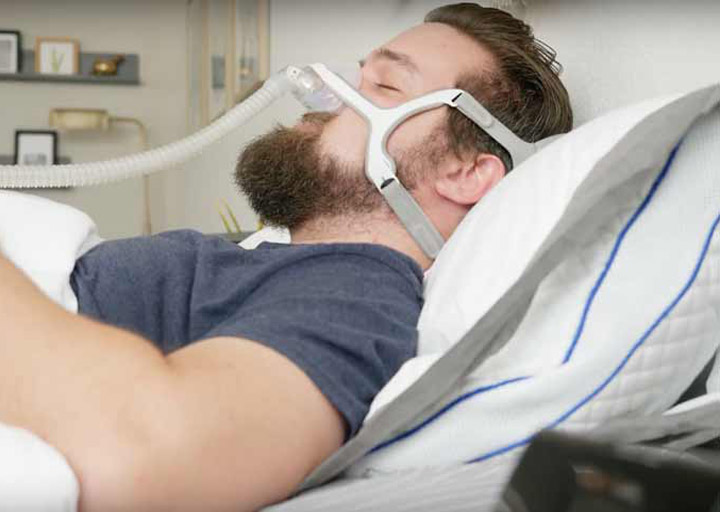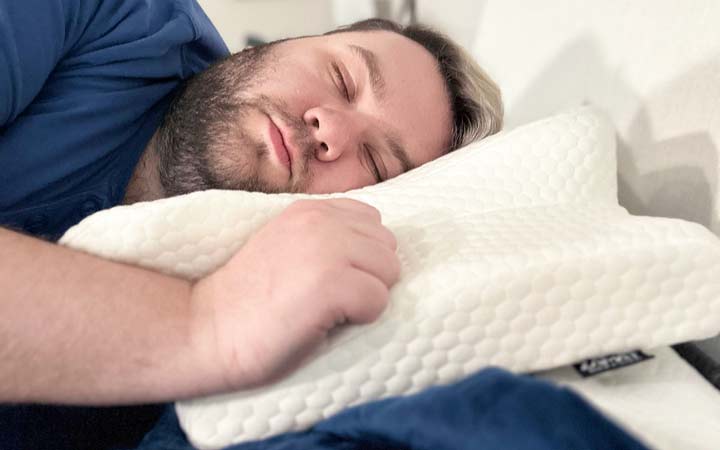Sleep is essential to our physical and mental well-being, and iron is a vital mineral that plays a critical role in our overall health. But what happens when these two elements intersect? Could the iron levels in our bodies affect the quality and duration of our sleep?
Whether you’re struggling with an iron deficiency or supplementing a restrictive diet, there is so much to unpack about iron supplements and the way they could impact sleep.
What Is Iron?
Iron is a mineral needed in the human body for both healthy growth and development.
Natural Sources of Iron
There are many natural sources of iron that can be acquired through the food we eat.

The following foods contain a decent amount of iron:
- Meats like beef, chicken, lamb, turkey, veal, and pork
- Seafood like shrimp, tuna, sardines, oysters, and scallops, clams
- Legumes such as lentils, peas, tofu, and tempeh
- Fruits like figs, dates, raisins, and prunes
- Vegetables like broccoli, string beans, dark leafy greens, cabbage, and Brussels sprouts
RELATED: Nutrition and Sleep
How Does Iron Affect the Body?
Iron makes up an essential part of hemoglobin, a red blood cell protein that helps to transport oxygen from the lungs to bodily tissues and muscles. It also helps the body to produce certain hormones for optimal functioning.
Iron Supplement Benefits
Iron helps with everyday bodily function. Taking a supplement could help with:
- Improved energy and focus
- Gastrointestinal processes
- Immune system functions
- Regulation of body temperature
Side Effects of Iron Supplements
Iron tablets can cause some nasty side effects, so it’s important to only take them if your doctor advises you to. Some of the side effects include nausea, diarrhea, cramps, constipation, and heartburn.
How Long Do Iron Supplements Take to Work?
While some people start feeling the effects of their iron tablets one week after they start taking them, others take up to four weeks to feel better.
Iron Deficiency and Sleep Problems
Oxford University Press has linked anemia (iron deficiency) to insomnia, so it’s important to ensure you have healthy iron levels to enjoy quality rest.
Iron Deficiency Anemia
Anemia is a lack of healthy red blood cells caused by inadequate iron or B12 intake. These red blood cells are important because they transport oxygen from the lungs to the tissues.
The National Institute of Health has noticed a link between the brain region that is responsible for hemoglobin levels and shorter sleep durations.
Sleep Apnea
Because iron plays such a big role in immunity, it has been linked to sleep apnea. While it may not directly cause sleep apnea, it may trigger someone who already suffers from sleep disorders.

RELATED: Best Mattresses for Sleep Apnea
Sleep Paralysis
Iron deficiency is not directly linked to sleep paralysis, a condition that causes the mind to stay awake while the body is asleep. However, there is evidence to support a link between iron deficiency and poor-quality sleep. Poor quality of sleep can lead to sleep paralysis in those that are susceptible to the condition.
Restless Leg Syndrome (RLS)
Iron deficiency can be directly linked to restless leg syndrome. In fact, it is one of the leading causes of restless leg syndrome.
Can Iron Supplements Affect Sleep?
While we know that iron deficiency can wreak havoc with your sleep, do iron supplements cause sleep issues too?
Can Iron Supplements Cause Insomnia?
No extensive studies have been done on whether iron supplementation can cause insomnia, but there is evidence to support the link between supplementing with iron and enjoying increased sleep.

How Much Iron Should I Take?
Before supplementing with iron, you will need to take a blood test, as taking high doses of iron can be very dangerous if you are not deficient. Adults over the age of 14 should take a maximum of 45 mg of iron per day, but this should first be approved by a healthcare practitioner.
When to Take Iron Supplements for Sleep
If your doctor believes you need iron supplements for your sleep, then it is best to take them one to two hours before bedtime. This is because iron is best absorbed on an empty stomach.
Who Should Take Iron Supplements?
Women who lose a high quantity of blood during their period are at a much higher risk of becoming iron deficient. Infants that are underweight or were born prematurely are also at a higher risk of becoming anemic and may need iron supplements.
It’s important to note that before taking iron supplements, you need to check with your healthcare provider.
Who Should Avoid Iron Supplements?
Only people with an iron deficiency should be supplementing with iron as it can be dangerous and lead to iron toxicity if your iron levels are normal. That said, iron supplements are particularly dangerous for those suffering from:
- Gastrointestinal disorders
- Celiac disease
- Crohn’s disease
- Ulcerative colitis
Best Natural Sleep Aids and Remedies
If you are not iron deficient but still want to try a natural alternative to help you sleep, these natural sleep aids are the best options:
- Magnesium
- Melatonin
- Ashwagandha
- GABA
- Chamomile
- Tart cherry juice
- Anti-energy drinks
FAQs
Can I take iron at night?
Taking your iron supplement at night is actually best as your body absorbs iron more efficiently on an empty stomach.
Can lack of sleep cause iron deficiency?
Lower sleep quality is linked to iron deficiency but there is no sufficient evidence to support the fact that getting less shut-eye will deplete your iron levels.
Can low iron cause sleep issues?
Yes, being deficient in iron has been linked to sleep issues. If you are having trouble getting to sleep at night, it might be best to ask a doctor to ensure you are not iron deficient.
Can low iron cause sleep problems in toddlers?
Studies have confirmed that iron deficiency in toddlers can lead to restless leg syndrome, restless sleep disorder, and even periodic limb movement.

